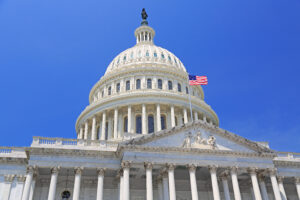Guest essay: Biden’s 2024 agenda a raw deal for West Virginians

The Biden administration seems to be a fan of doubling down on bad ideas. After adding more than $5 trillion to the national debt since taking office in 2021, the White House has teed-up a nearly $7 trillion budget proposal for 2024. The track record of fiscal irresponsibility is having very real consequences. West Virginians have recently experienced the highest inflation in 40 years.
While President Biden might be attempting to woo centrist lawmakers by wrapping the budget proposal with deficit reduction rhetoric, Sen. Joe Manchin and his colleagues should see through the smoke and mirrors.
West Virginia’s senior senator has been burned by Biden before, recently penning an opinion piece in The Wall Street Journal acutely titled, “Biden’s Inflation Reduction Act Betrayal.” Manchin shouldn’t expect anything different this time around. There’s no shortage of holes to poke.
Proponents of the policy blueprint argue the proposed 2024 budget will cut the deficit by $1.3 trillion compared to last year. Although a nice talking point, it’s not newfound fiscal responsibility like the White House suggests.
The reduction is mainly a result of disappearing pandemic-era spending programs. And “cost saving” provisions that do exist are new taxes that will whack economic growth — a move that’s akin to shooting ourselves in the foot over the long run. As we saw with the 2017 Tax Cuts and Jobs Act, lower — not higher — taxes boost economic activity that translates to elevated tax revenue.
As a practicing physician, the budget’s healthcare components should also raise eyebrows. President Biden is doubling down on applying government pricing controls on prescription drugs — a move that will have severe unintended consequences.
Rising medicine prices have become a hot-button topic in the U.S., and for good reason. More than one-third of Americans have skipped filling a prescription because of high costs. But government price controls aren’t the answer; they create more problems than they solve.
Take elements of the Inflation Reduction Act (IRA) — legislation that was passed and signed into law last year — as a cautionary tale. The bill included government price controls for some medicine accessed through Medicare.
While capping prices on prescription drugs may seem like a simple solution to reducing drug costs, it ignores the fact that drug development is a complex and expensive process that relies on significant investment from pharmaceutical companies. In fact, it costs more than $2 billion on average to bring a new drug to market.
If Uncle Sam applies its considerable leverage to pressure companies into offering products at below market rates, recouping research and development costs becomes an uphill battle. The reverse in financial feasibility and free market incentives will translate to less innovation and fewer new drugs being developed.
Unfortunately, this scenario is no longer hypothetical. Following passage of the IRA, some drugmakers are already cutting back on investments in new cancer treatments. With falling research and development returns, others are also surely rethinking their strategies. And this is only the beginning.
If Manchin truly wants to take steps to help West Virginians struggling to afford medicine at the pharmacy counter, supporting even more government price controls for medicine isn’t the path forward.
Instead, he could lend his considerable bipartisan firepower to efforts already underway to rein in the middlemen of the drug supply chain — entities that are largely responsible for ballooning drug costs. The Senate Committee on Health, Education, Labor, and Pensions is holding a hearing this week to investigate the issue. Hopefully strategies to address PBM schemes will be top of mind for committee members.
Biden’s proposed budget for 2024 is a broken record. West Virginia’s elected officials in Washington should think twice before supporting it. It’s a raw deal.





